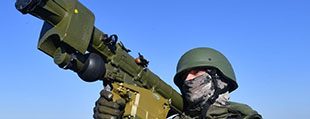Haniyeh is the second Hamas senior leader to be killed since the war in Gaza began. In January, the group said the deputy head of its political bureau, Saleh Al Arouri, was killed in an Israeli airstrike in Beirut. Arouri was considered one of the founding members of Hamas’s military wing, the Izz ad-Din al-Qassam Brigades.
The impact of any single death in Hamas’ leadership structure is difficult to predict given the group’s vast and opaque network, and it has been able to weather the death of other key leaders before – including the slaying of its co-founders Sheikh Ahmed Yassin and Abdel Aziz Rantisi, killed weeks apart in 2004.
But Haniyeh’s death leaves Hamas without its public political figurehead, and likely represents a major setback to its international operations. It would not be expected to dramatically impact its military effort, but his demise may carry symbolic weight throughout the organization.He had taken a central role in hostage and ceasefire talks between Israel and Hamas, and earlier this spring said Hamas was willing to strike a deal – but added it would require Israel withdrawing from Gaza and a guarantee to cease fighting in the enclave permanently, demands that Israel has called “unacceptable.”

